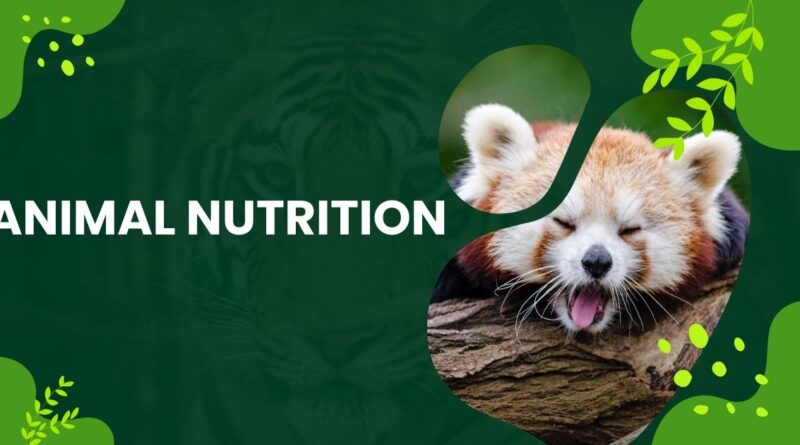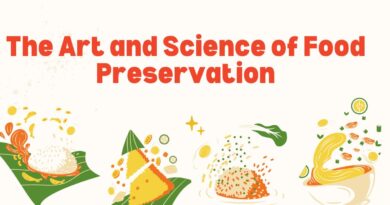Vitamins In Animal Nutrition
Vitamins play an important role in the health and well-being of animals, similar to what they do in human beings. These critical vitamins are essential for numerous physiological capabilities, from growth and digestion to illness prevention and regular power.
Understanding how vitamins are characteristic of inner animal diets is pivotal for ensuring maximum reliable health and preferred overall performance.
This article explores the importance of vitamins in Animal Nutrition, their classifications, the precise roles of key nutrients like A, D, E, and K, and the sensible implications of accomplishing balanced nutrition stages.
By delving into the topics, we propose to provide a clear understanding of why nutrients matter in animal diets and the way their right management can maximize animal fitness and productivity.
Understanding Vitamins:
Learn about calories, which are micronutrients that are required by animals for effective combustion. Assess the dietary aspects of dissolving in (A, D, E, K) and easily soluble in water (B complex, C) vitamins.
Vitamins Bound in Fat:
Examine the functions and degradation of vitamins that are fat-soluble:
- Vitamin A: Critical for immune system performance and vision.
- Vitamin D: Improves healthy bones and the utilization of calcium.
- Vitamin E: Protects cells from destruction by acting as a form of antioxidant.
- Vitamin K: Essential for the functioning of bones and blood coagulation.
Recognize the risks of hazardous weight loss programs and the value of eating correctly.
Water-Soluble Vitamins:
Delve into water-soluble nutrients:
- B-Complex Vitamins: Including B1, B2, B3, B6, B12, folate, biotin, and pantothenic acid, vital for electricity metabolism and worried tool fitness.
- Vitamin C: Known for its antioxidant homes and function in collagen synthesis and immune function.
Discover property, requirements, and the impact of deficiencies on animal fitness.
Importance of Vitamin Supplementation:
Explore the want of vitamin supplementation:
- Methods and demanding conditions in ensuring animals obtain pinnacle sufficient vitamins.
- Impact on fitness, growth, duplicate, and performance.
Understand how supplementation contributes to balanced nutrients and most importantly animal welfare.
Practical Considerations:
- Practical Considerations: Factors influencing nutrient requirements, together with species, age, and environmental situations.
Frequently Asked Questions:
Signs of weight loss program deficiency can encompass terrible increases, coat or feather abnormalities, reproductive troubles, weakened immune characteristics, and precise health situations like scurvy or rickets, relying on a poor diet plan.
Yes, immoderate intake of certain vitamins, especially fat-soluble vitamins like A and D, can result in toxicity. This may additionally motivate signs together with bone abnormalities, liver harm, and in excessive times, organ failure.
Animals also can require food regimen supplementation to ensure they meet their nutritional desires, especially at the same time as diets may lack enough nutrients because of processing, storage, or precise dietary guidelines.
Veterinary sessions and nutritional assessments can decide if an animal’s diet regime offers adequate nutrients. Factors that include age, fitness reputation, and common overall performance desires have an impact on whether or not supplementation is essential.
Animal Nutrition diets come from natural resources like glowing results and vegetables, grains, meat, fish, and fortified feed.
Supplements and business enterprise feeds also make contributions to ensuring animals get maintenance of important vitamins for maximum inexperienced fitness and normal standard overall performance.
Conclusion:
In the end, statistics on the characteristics of nutrients in animal nutrients are paramount for maintaining the best fitness and common overall performance. Vitamins, whether or not fat-soluble or water-soluble, play important roles in metabolic strategies, growth, immune characteristics, and common well-being in animals.
From Vitamin A’s important feature in imagination and prescient to Vitamin C’s antioxidant residences, every nutrition contributes uniquely to animal fitness. Proper supplementation and balanced diets tailored to specific nutritional necessities are key to preventing deficiencies and helping energy in various animal species.
By prioritizing food plan control in animal nutrients, caretakers can make sure that their animals thrive, supplying a basis for durability and productiveness.





